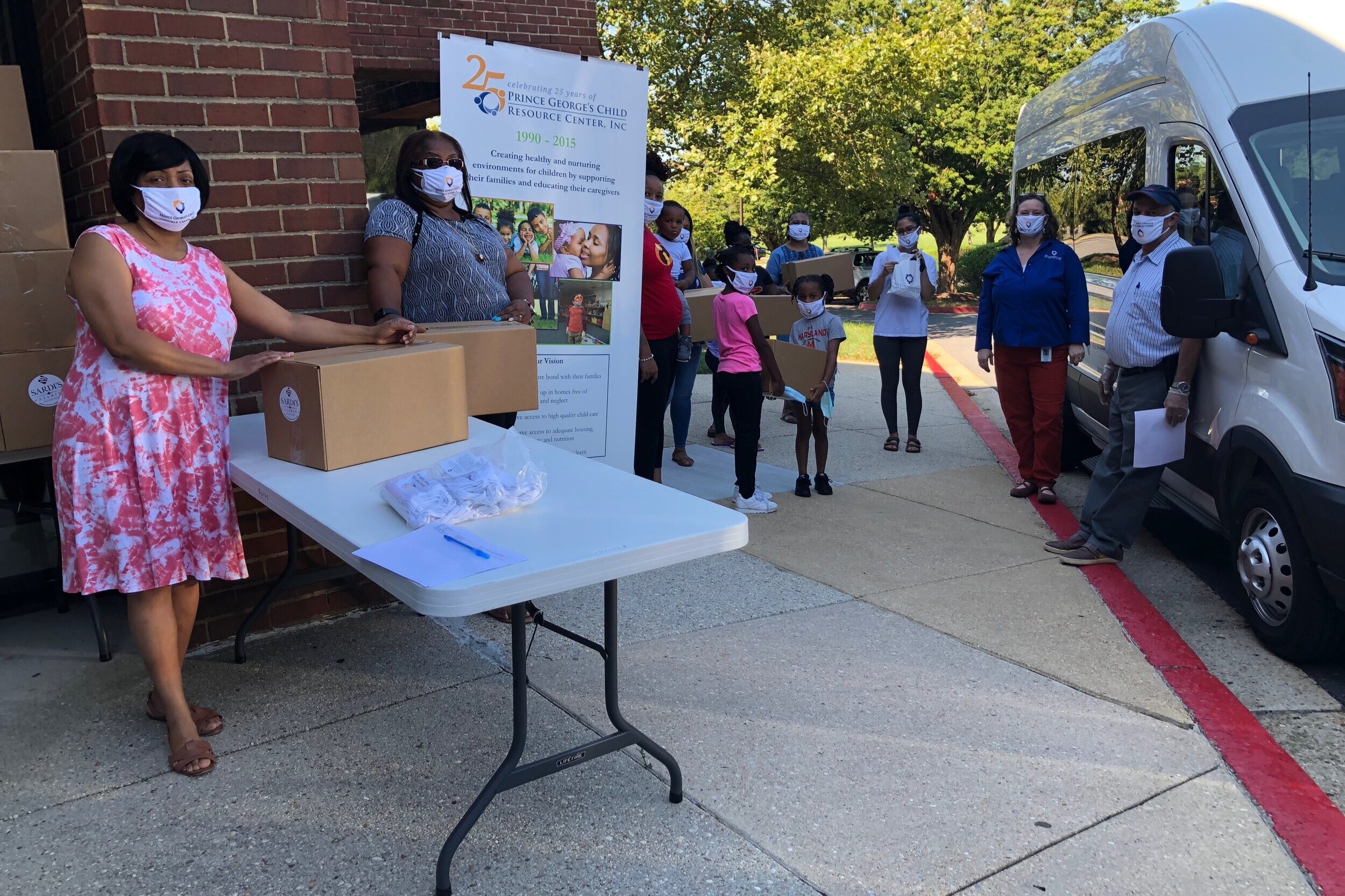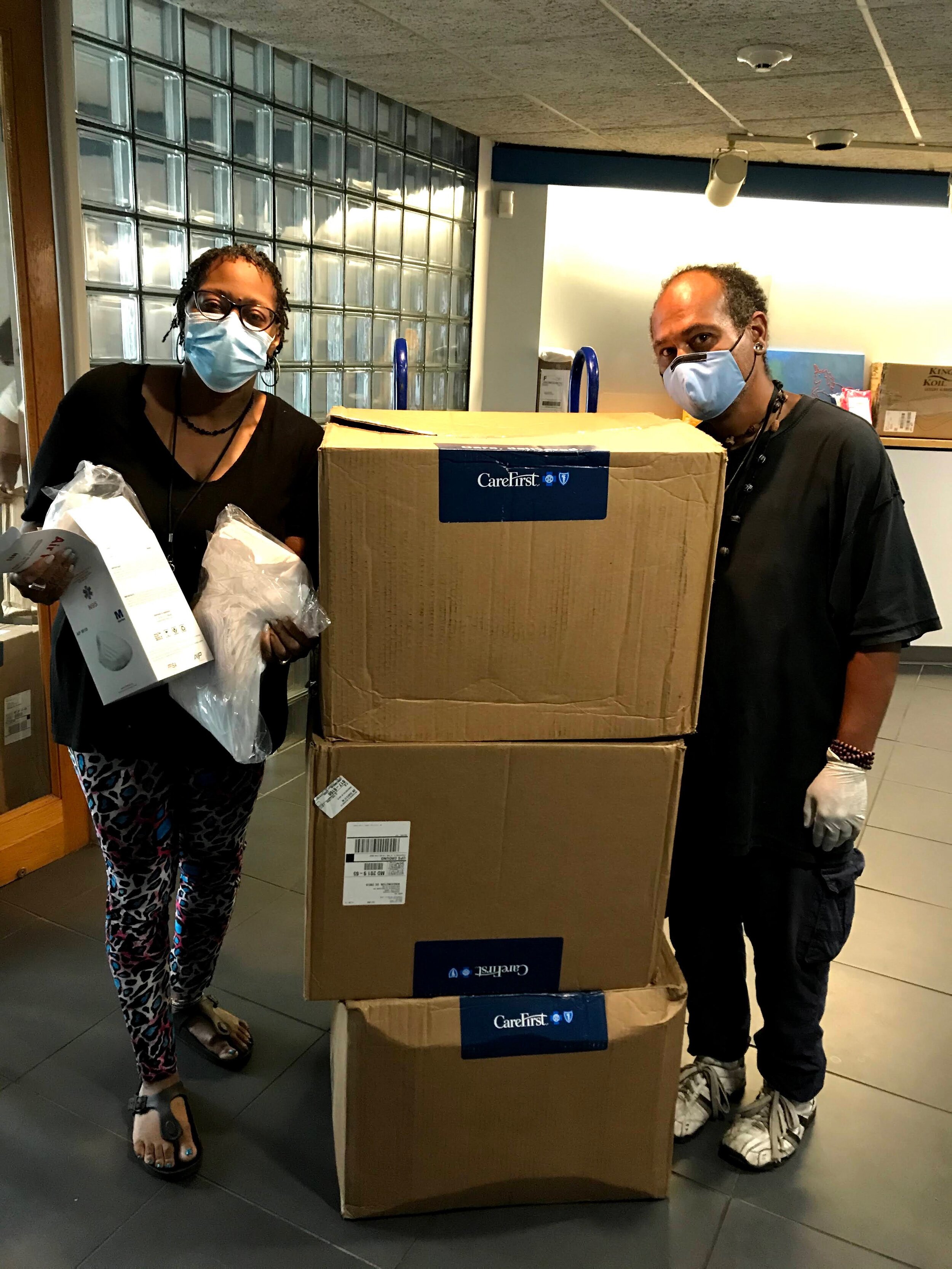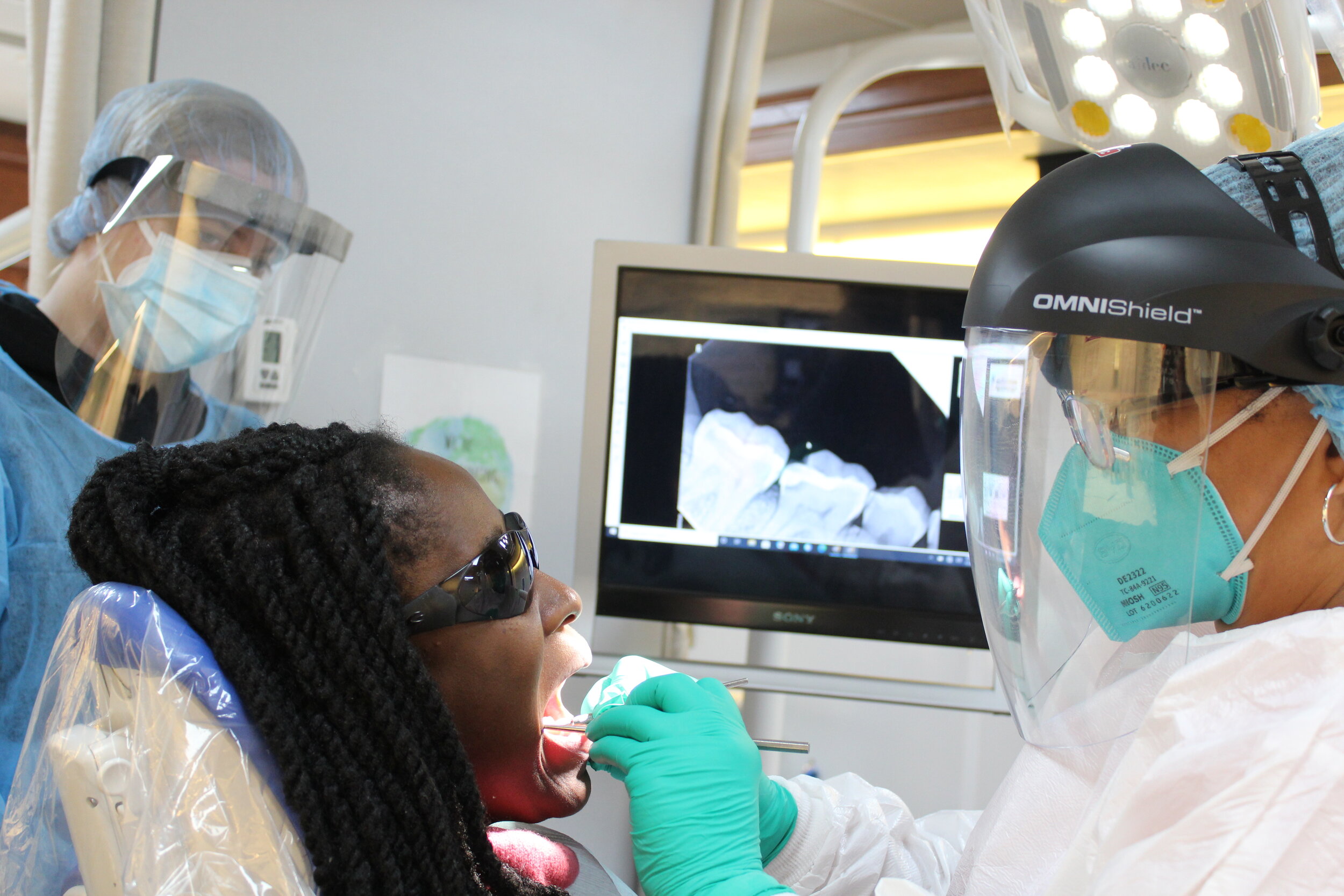The Greater Washington Community Foundation is pleased to announce $440,000 in grants from the Equity Fund to 19 nonprofit organizations serving Prince George’s County, MD. Selected nonprofits will receive up to $25,000 in funding to support work to advance food security, affordable childcare, and workforce equity in Prince George’s County. These grants were made possible thanks to a generous gift from the Ikea U.S. Community Foundation.
Nourishing A Community In Need
Senior citizens have been among our region’s most impacted populations—especially in terms of food security. Through our Equity Fund, we awarded $115,000 to six food assistance programs serving seniors and families in Prince George’s County. Thanks to these providers, families have access to healthy food through prepared food from local restaurants, fresh food from local farmers, and shelf-stable food.
“This grant has helped Hyattsville Aging in Place (HAP) maintain and expand its services during the pandemic,” said Lisa Walker, Chair of the HAP Board of Directors. “As we struggled to provide services while guarding the health of our neighbors, the Greater Washington Community Foundation’s grant not only helped HAP deliver needed support and services to seniors in need, it also spurred HAP to build deeper connections with other programs in our community.”
Ensuring Affordable Childcare for Families
COVID-19 has devastated the childcare provider community, forcing the closure of 40% of childcare programs, and resulting in the loss of more than 8,000 childcare slots. The Prince George’s Child Resource Center received a $25,000 grant from the Equity Fund to help ensure the sustainability of childcare providers in the County.
"Through The Community Foundation's Equity Fund, we are able to provide advocacy and support for the childcare workforce. Ensuring strong, high quality childcare means employment for thousands in Prince George's County; children are in safe environments where they are learning; and parents can go back to work with confidence,” said Jennifer Iverson, Executive Director, Prince George’s Child Resource Center. “Access to childcare is essential for families seeking employment and absolutely critical for those still fortunate enough to have a job.”
Curbing the Impact of Unemployment
Fifty percent of the jobs created in Prince George’s County over the past five years were lost in the first two weeks of COVID. Through the Equity Fund, we awarded $300,000 to 14 organizations to help mitigate the impact of unemployment, reduced wages, and lost work. These grants will help prepare workers for meaningful employment and ensure that people facing barriers to employment can access high-quality education and job opportunities, which pay a family-sustaining wage.
Kim Rhim, Executive Director of The Training Source, said:
“The Equity Fund grant was a life saver for us and so many already marginalized people who were further impacted by COVID-19. Many workers will never return to their jobs, and those who previously struggled to find work will find it much more difficult to secure employment. They will have to learn new skills and adapt to entirely new work environments, including the now vast telework environment. [This support from The Community Foundation] will help them do just that.”
2020 Equity Fund Grantees
Asylum Seeker Assistance Project to provide wraparound employment services and support to asylum-seeking adults residing in Prince George’s County.
Community Outreach and Development CDC to purchase food and support food pantry operations including food deliveries and assisting persons to apply for SNAP food benefits.
Community Support Systems, Inc. to support food pantries that benefit residents in Southern Prince George’s County.
Court Appointed Special Advocate (CASA)/ Prince George's County, Inc. to help youth overcome the hurdles they face as a result of the traumas they endured as children by focusing on workforce readiness, education, and skills development.
Eckerd Youth Alternatives to mitigate barriers, attain critical workforce skills, and navigate a pathway to gainful employment for youth who are disconnected from employment or educational opportunities.
Food & Friends to provide health and nutrition education workshops, individualized assessments, and the preparation and delivery of medically tailored meals to individuals who are living with HIV/AIDS, cancer, or another critical illness, as well as children and caregivers.
Hyattsville Aging in Place, Inc. (HAP) to help seniors by delivering food, providing transportation to food sources, and assisting with access to financial resources.
Joe's Movement Emporium to create a pipeline of diverse, skilled workers by providing young adults with training in digital media and technical theatre, experience with regional employers, and one-on-one coaching and counseling.
Laurel Advocacy and Referral Services, Inc. to support households living at or below the poverty line that are working to increase their earnings and achieve economic mobility.
Life Asset, Inc. to create temporary and seasonal jobs by providing microloans coupled with ongoing business training to low-income entrepreneurs.
Mission of Love Charities, Inc. to help people become Water Treatment Technicians and Certified Nursing Assistants by providing requisite training and employability skills and job search assistance.
Ourspace World, Inc. to recruit, train, and mentor young people to be competitive in the green jobs sector.
Prince George's Child Resource Center, Inc. to provide support to family childcare providers to ensure the provision of a safe and nurturing environment for children and the sustainability of the childcare sector.
Prince George's Community College to support curriculum design and digital literacy training for students and faculty.
Pro Bono Resource Center of Maryland Inc. to provide consumer protections to help individuals avoid crippling judgments, wage garnishments, and impossible choices between rent, medical care, and food for their families.
Solutions In Hometown Connections Corp. to connect low-income refugee and immigrant women with critical services and resources that minimize barriers to self-sufficiency.
Sowing Empowerment & Economic Development, Inc. (SEED) to serve as a food hub providing supplemental food to seven pantries in Prince George’s County.
The Training Source, Inc. to help residents secure and retain well-paying employment through comprehensive training, job readiness, and community supportive services.
TranZed Apprenticeship Ventures, LLC to secure new employer partnerships and placement in Prince George’s County for apprentices.
University of Maryland SAFE Center for Human Trafficking Survivors to initiate a “First Step into Employment” program that includes an hourly stipend for young adult trafficking survivors in need of meaningful employment experience, training, skills development, and a supportive mentor.
About The Equity Fund
The Greater Washington Community Foundation’s Equity Fund seeks to eliminate social and economic disparities in Prince George’s County by ensuring that every Prince Georgian is afforded the opportunities necessary to reach their full human potential. The focus areas for the 2020 grant round were food security, childcare, and workforce equity. Grants were awarded to high impact organizations and innovative programs working to create pathways to success for county residents.
Visit us at https://www.thecommunityfoundation.org/princegeorges to learn more about our impact and work in Prince George’s County






























